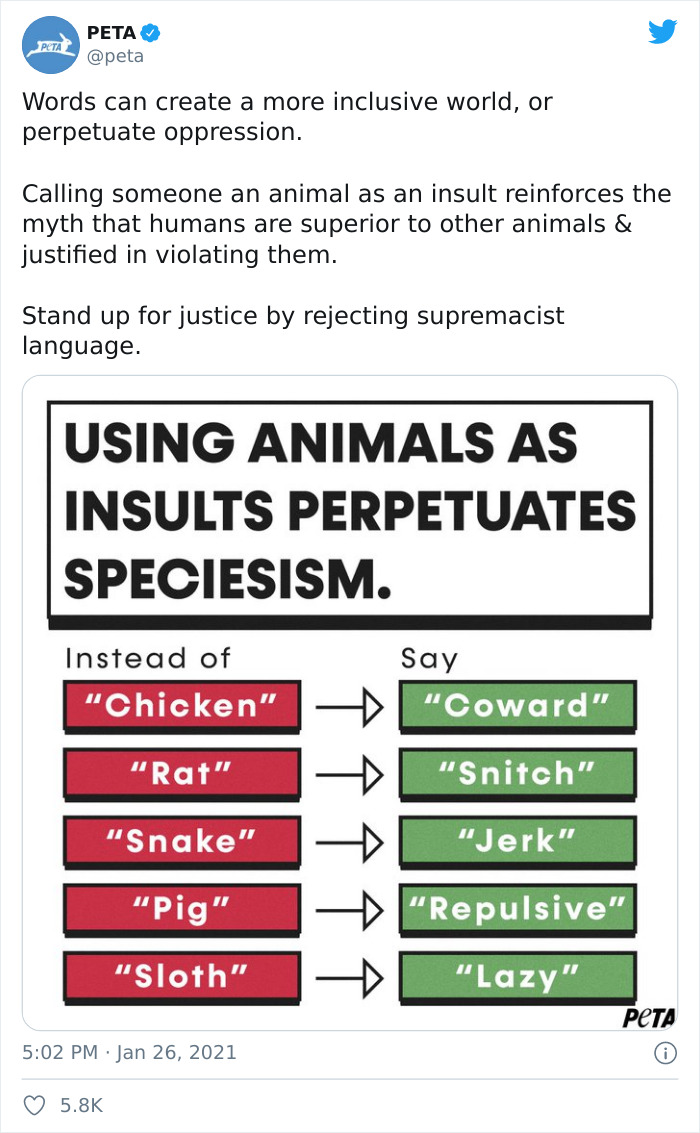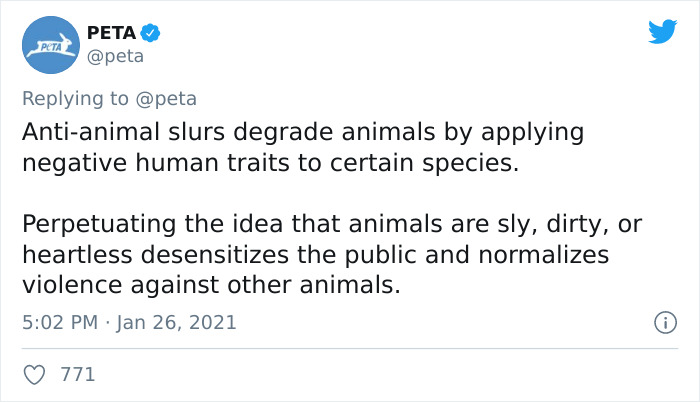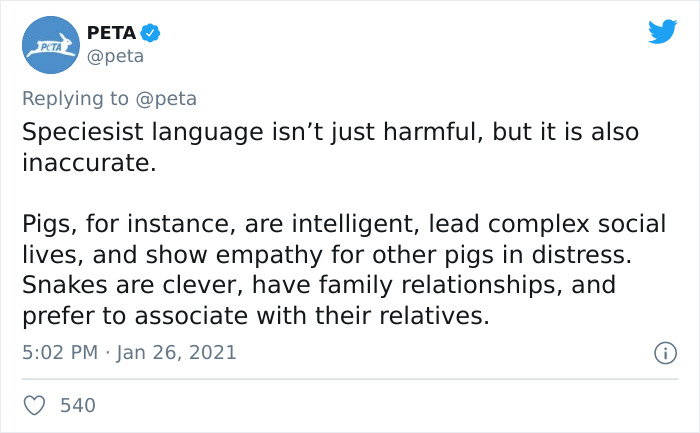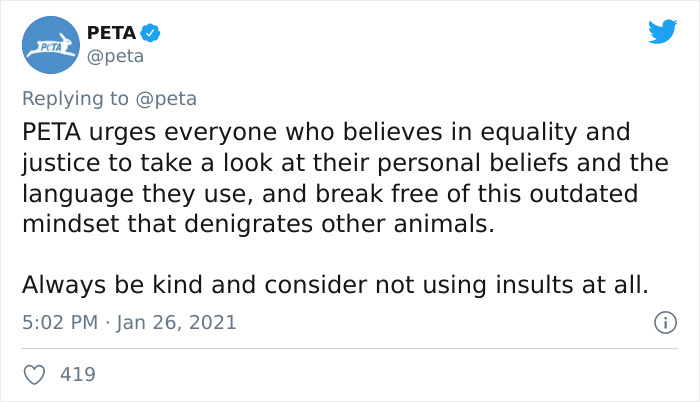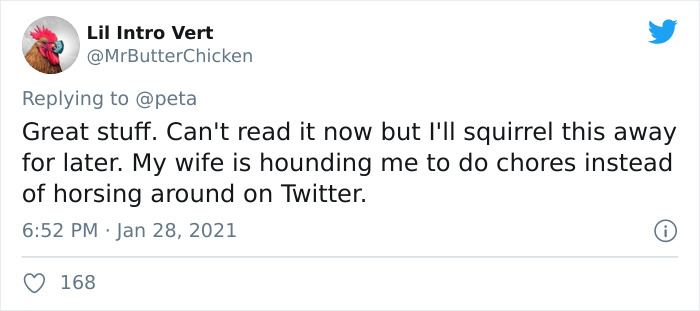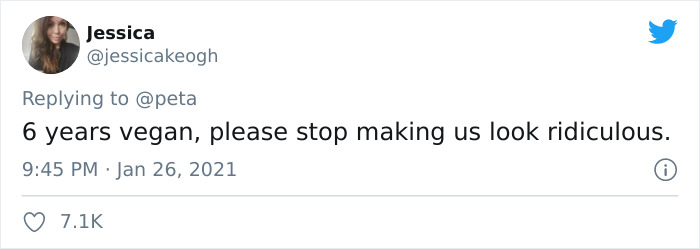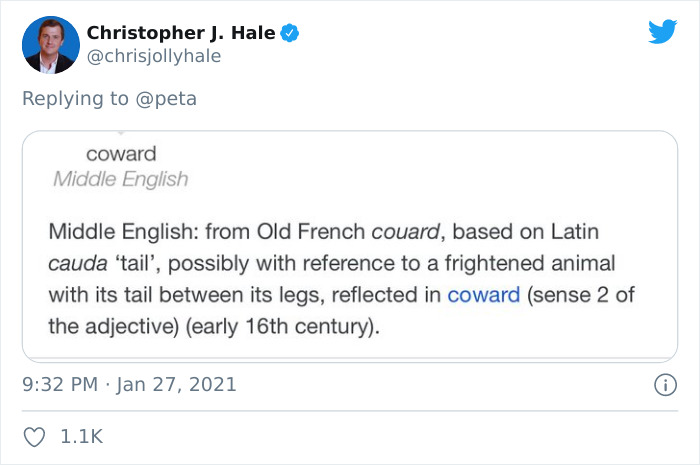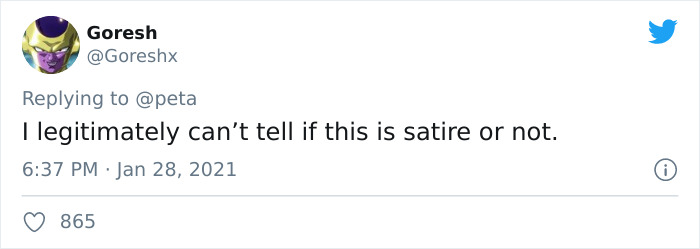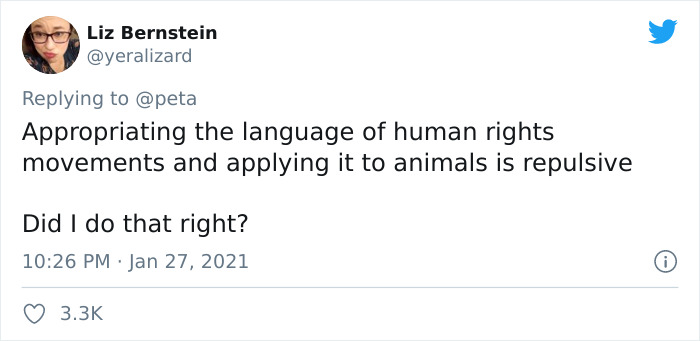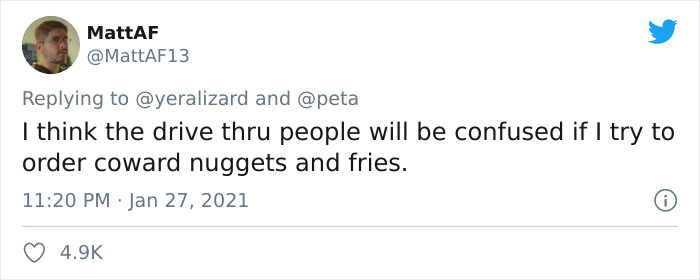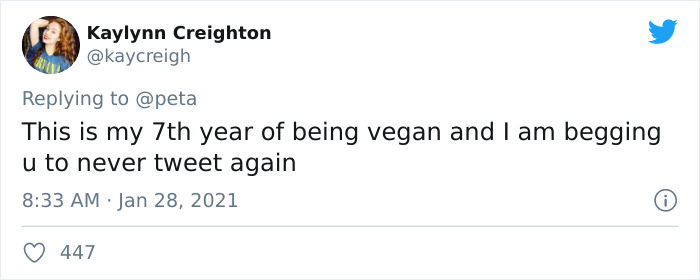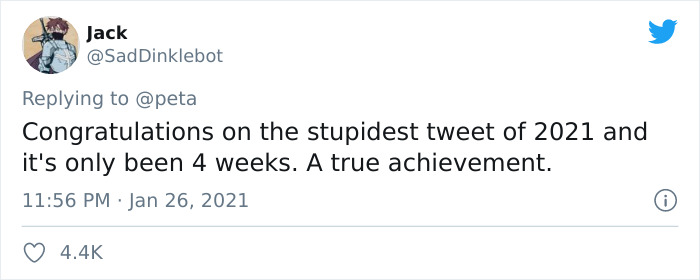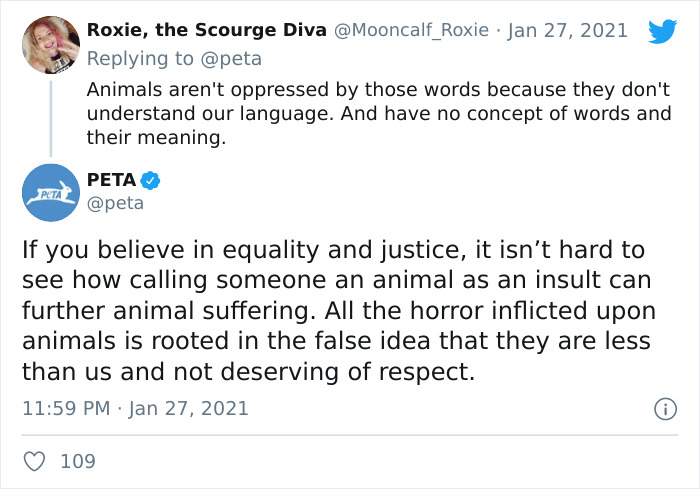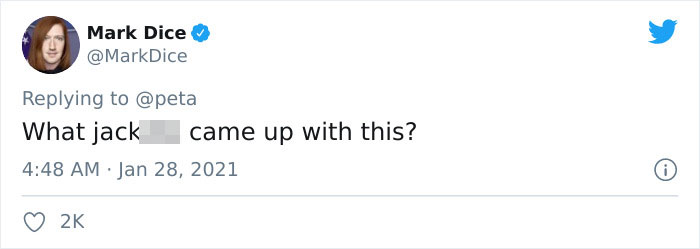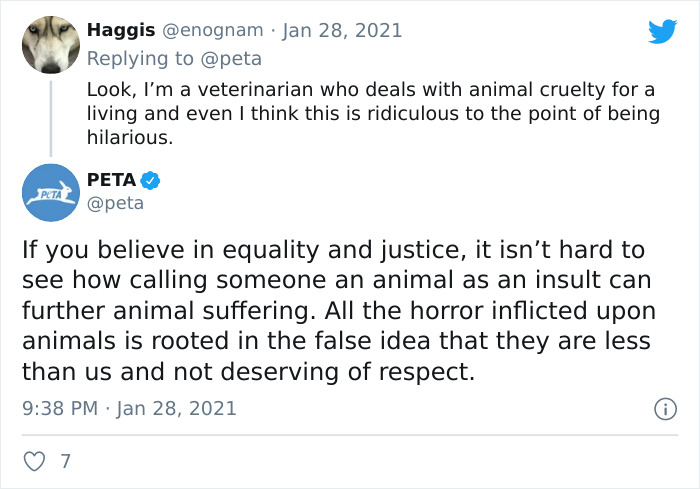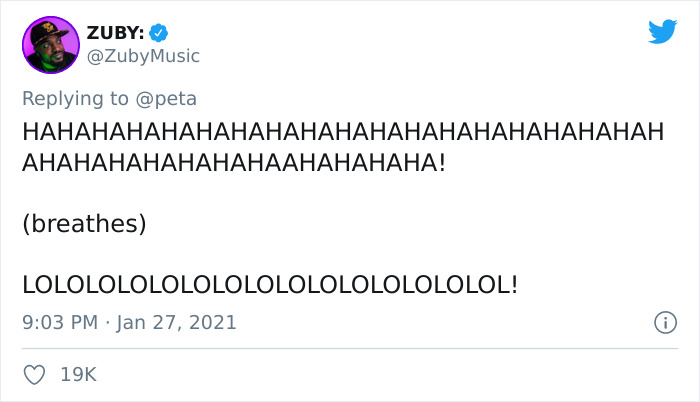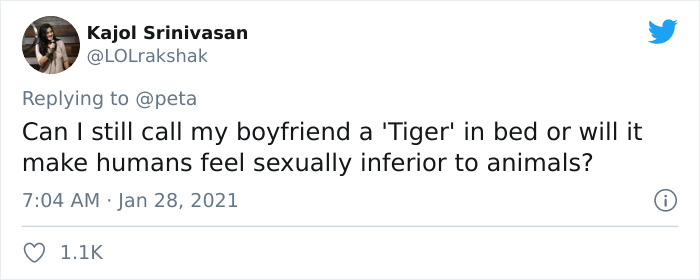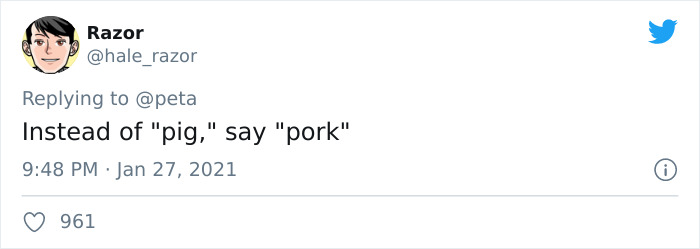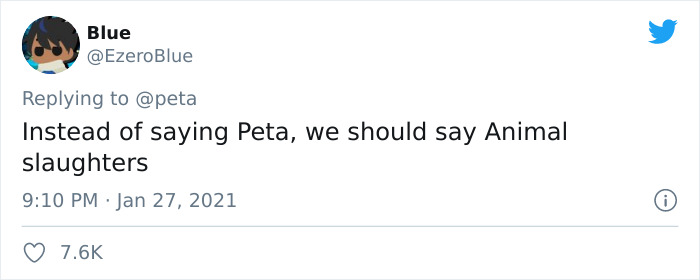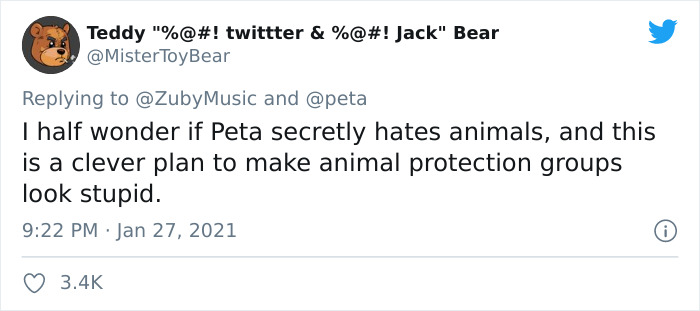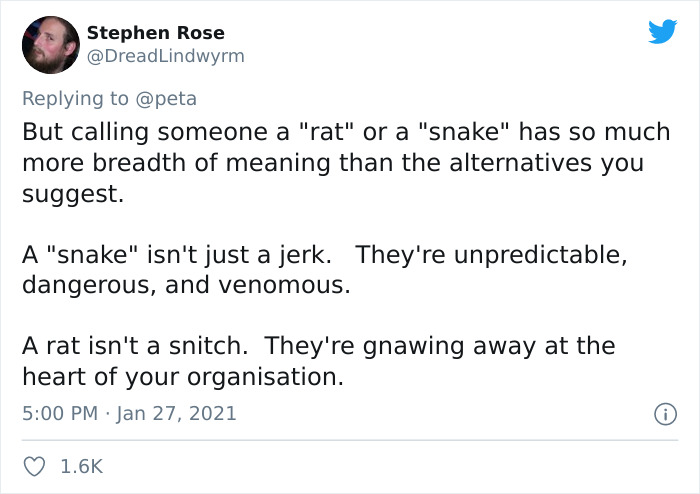There’s probably no one who wouldn’t recognize the PETA logo… or the level of vitriol that usually follows it. As they say, the road to he...
There’s probably no one who wouldn’t recognize the PETA logo… or the level of vitriol that usually follows it. As they say, the road to hell is paved with good intentions, and this animal-loving company certainly lives up to the expectation. And whether this will surprise you or not, PETA is at it again. The often-problematic organization delved right into another deep end, this time somewhat echoing itself when it comes to policing speech and trying to find issues where none exist. Previously, the organization wanted people to stop using phrases that involve animals , and now PETA seems to find issue with the preconceptions of animal names in the English language.
PETA criticized speciesist language and wants people to stop using animals as insults
Image credits: peta
On paper, it seems like a good and valid point (hear me out here before grabbing pitchforks!). Insulting someone purely because of preconceptions without any merit shouldn’t be considered normal, so it’s a good idea to stop, isn’t it? However, PETA chose to fight the wrong fight, so to speak. According to them, people shouldn’t be called by animal names because it degrades the animal. PETA also argues that such language underlines the superiority of man.
The organization claims that using anti-animal slurs normalizes violence against animals
Image credits: peta
PETA claims that when you call someone a “snake” or a “pig,” you degrade the animal by giving them negative human-oriented traits. However, since that’s not how language works, their argument is shaky at best. Our definitions come from centuries-old past, when our descriptions came from what was around us. This is not a new thing, and if anything, the connotation of the word is based on the animal itself (which, sure, may have changed over time), not the other way around.
PETA is resolute that such language harms animals by presenting inaccurate facts about them
Image credits: peta
While the descriptions that are often attached to animals can be inaccurate at times, it’s important to keep in mind that language is not a fluttery thing that shifts with the wind. While certain connotations might be outdated or even factually inaccurate, they can be considered hyperbole—no one thinks that snakes are truly spies in disguise, but from the old times, they were associated with trickery, and it’s unlikely that if we stop referring to a traitorous person as a “snake,” the larger image of this animal will be impacted, since there’s a historic root that it stems from.
PETA wants the world to leave the “outdated mindset” of animal name-calling behind
Image credits: peta
Here’s where they trip themselves—not only are they implying that calling people by animal names can be comparable to hate speech, there’s another issue of good connotation they missed. For example, “fox” is considered to be a good descriptor (e.g. smart like a fox). If we get rid of all the animal-associated descriptors from our language, we have to remove the good ones too—doesn’t that count as erasure of animal virtues? Point is, PETA overshot a bit with their attempt, which—while not entirely devious—is certainly ruffling some feathers.
Image credits: MrButterChicken
And people online were like sharks who smell blood in the water
Image credits: jessicakeogh
Image credits: chrisjollyhale
Image credits: Goreshx
Image credits: yeralizard
Image credits: MattAF13
Image credits: kaycreigh
Image credits: SadDinklebot
Image credits: peta
Image credits: MarkDice
Image credits: peta
Image credits: ZubyMusic
Image credits: LOLrakshak
Image credits: hale_razor
Image credits: EzeroBlue
Image credits: MisterToyBear
